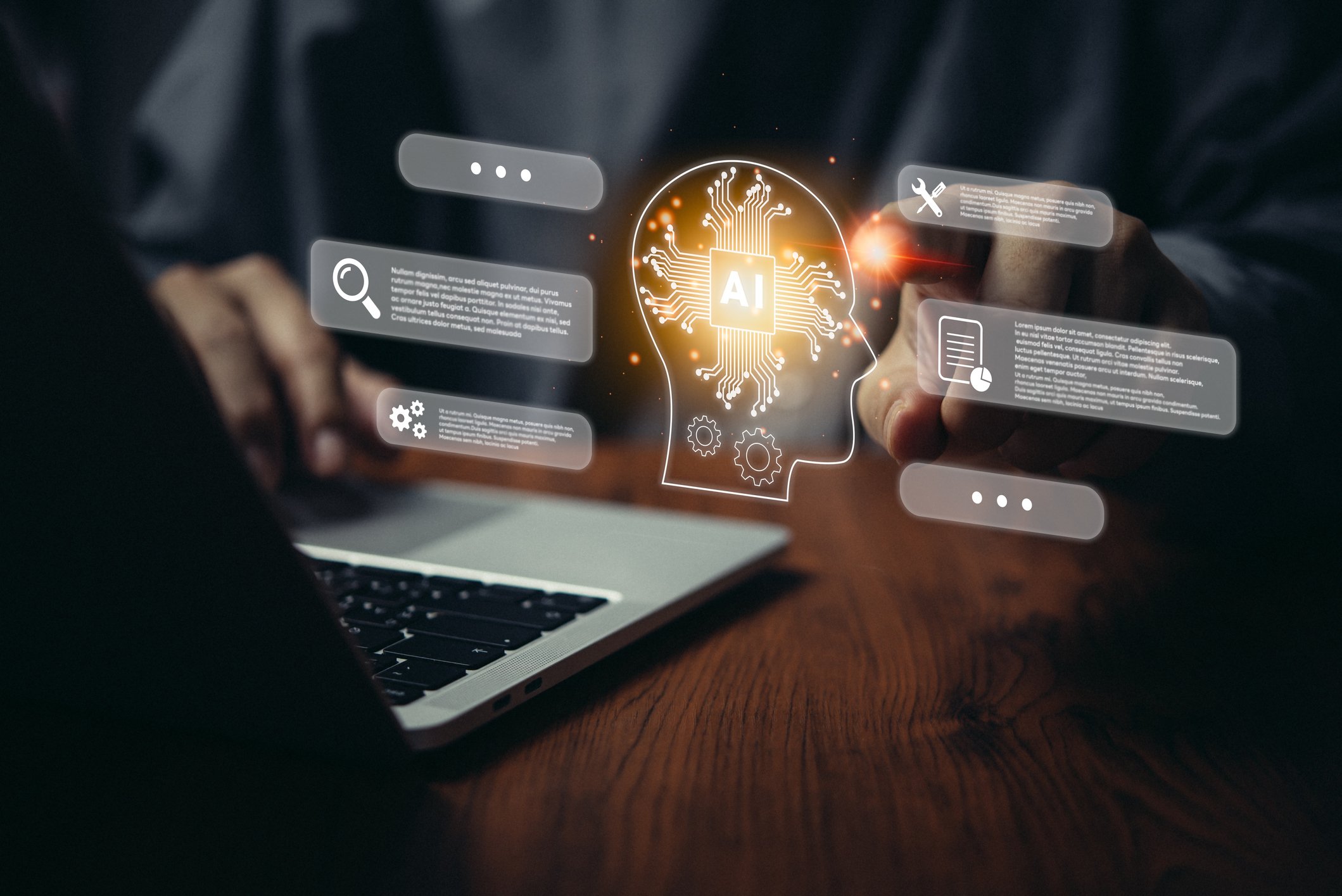Best Digital Marketing and Website Development Company in Vaishali
The Role of AI in Revolutionizing Digital Marketing
Artificial Intelligence (AI) has rapidly transformed the digital marketing landscape, enabling businesses to enhance customer experiences, improve decision-making, and achieve remarkable efficiencies. From predictive analytics to personalized content delivery, AI is reshaping how companies engage with their audiences. In this blog, we’ll explore the role of AI in revolutionizing digital marketing and how businesses can leverage it for better results.

1. Personalized Customer Experiences
AI enables businesses to deliver highly personalized customer experiences by analyzing large volumes of data and understanding individual behaviors and preferences. By using machine learning algorithms, AI can segment customers based on their interests, browsing history, and purchasing habits, allowing companies to tailor their marketing messages accordingly. This level of personalization not only boosts engagement but also improves customer satisfaction and conversion rates.
For example, AI-powered recommendation engines (like those used by Amazon or Netflix) suggest products or content based on past interactions, leading to higher chances of conversion. Personalized emails, offers, and dynamic website content also leverage AI to engage users with content that resonates with their needs.
2. Enhanced Data Analysis and Insights
One of AI’s strongest capabilities is its ability to process and analyze vast amounts of data quickly and accurately. Traditional data analysis methods could take days or even weeks to generate insights, but AI can process data in real time, providing marketers with actionable insights on customer behavior, campaign performance, and market trends.
By using AI-driven analytics tools, businesses can identify patterns, predict future trends, and optimize marketing strategies in real-time. This ability to process big data at scale empowers businesses to make data-driven decisions faster and more effectively.
3. Chatbots and Conversational AI
AI-powered chatbots and virtual assistants are becoming integral parts of customer service and digital marketing. These tools can interact with customers in real time, answering queries, providing product recommendations, and even processing transactions—all without human intervention.
Chatbots use Natural Language Processing (NLP) to understand and respond to customer queries in a human-like manner, improving response times and user satisfaction. With AI, chatbots can continuously improve through machine learning, offering more accurate and relevant responses over time. This automation not only enhances customer experience but also reduces costs by handling common inquiries and support issues.
4. AI in Content Creation
AI is also playing a significant role in content creation and curation. Content marketers can use AI tools to generate high-quality written content, suggest blog topics, optimize headlines, and even create personalized content for different audience segments. For example, AI-driven tools like GPT-3 (which powers ChatGPT) can generate blog posts, social media captions, and more based on simple inputs.
Additionally, AI helps marketers analyze the effectiveness of their content by measuring user engagement and recommending improvements. By using AI to automate aspects of content creation and distribution, businesses can focus more on strategy and less on manual tasks.
5. Improved Advertising Campaigns
AI has transformed digital advertising by making campaigns more targeted and cost-effective. Through AI, advertisers can optimize their ad spending by automating bidding strategies, targeting the right audience, and adjusting campaigns based on real-time performance data.
AI tools use machine learning to predict which ads are most likely to resonate with different segments of an audience and place ads at the most effective times and platforms. AI-driven platforms like Google Ads and Facebook Ads use predictive analytics to improve the ROI of advertising campaigns, ensuring that ad dollars are spent efficiently and effectively.
6. Predictive Analytics for Marketing Campaigns
AI’s predictive capabilities allow marketers to anticipate customer behavior and plan marketing campaigns accordingly. By analyzing historical data, AI can predict which customers are most likely to convert, when they are likely to make a purchase, and what products or services they might be interested in.
Predictive analytics can help businesses identify potential leads, target high-value customers, and optimize their marketing spend by focusing on individuals with a higher likelihood of conversion. This allows businesses to implement more efficient and cost-effective marketing strategies, improving the overall success rate of their campaigns.
7. AI for Social Media Marketing
AI has revolutionized social media marketing by offering smarter ways to interact with audiences, analyze sentiment, and create content. Social media platforms like Facebook, Instagram, and Twitter leverage AI to suggest the most relevant posts and ads to users based on their browsing history and interactions.
AI can also help businesses monitor their social media presence by analyzing customer sentiment and tracking brand mentions. This insight allows businesses to better understand their audience’s feelings toward their brand and respond proactively to negative feedback or capitalize on positive sentiment.
8. Voice Search Optimization
With the increasing popularity of voice-activated devices like Alexa, Siri, and Google Assistant, voice search has become an essential aspect of digital marketing. AI is playing a key role in optimizing websites for voice search, helping businesses ensure their content is discoverable by voice-enabled devices.
AI helps optimize long-tail keywords and conversational search queries, which are typically used in voice searches. By understanding how people phrase questions or search queries via voice, businesses can optimize their content to appear in voice search results, improving visibility and driving more organic traffic.

Conclusion:
AI is undoubtedly revolutionizing digital marketing by automating tasks, improving targeting, and delivering personalized experiences. From data analysis and content creation to predictive analytics and social media management, AI is helping businesses gain a competitive edge and achieve better results. As AI continues to evolve, digital marketers must embrace these technologies to stay ahead of the curve and maximize their marketing efforts.
Implementing AI-driven strategies can improve operational efficiency, drive more relevant customer interactions, and increase the overall success of your marketing campaigns. By leveraging AI’s capabilities, businesses can build stronger relationships with customers and achieve long-term growth in a competitive digital world.
